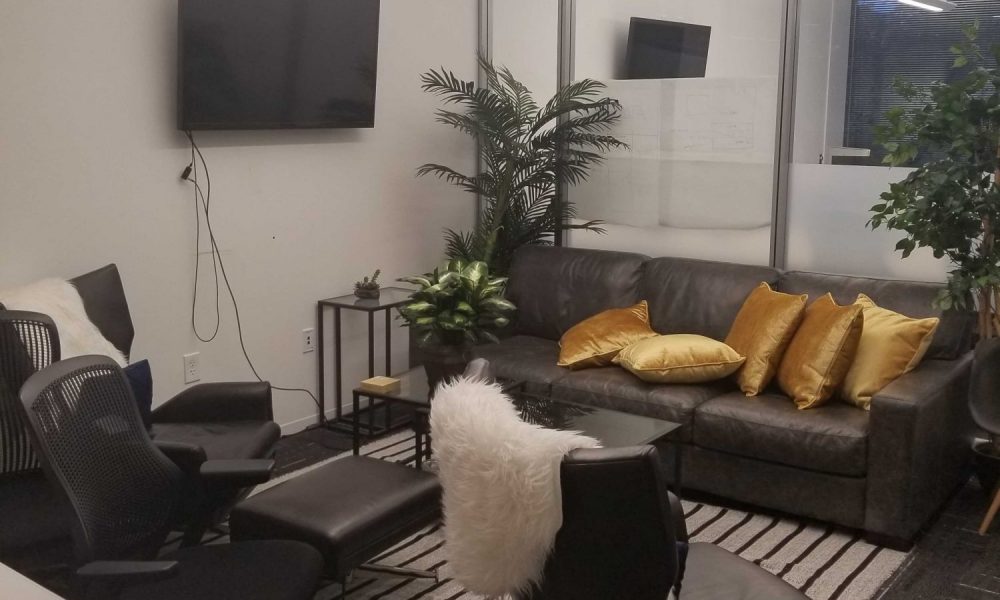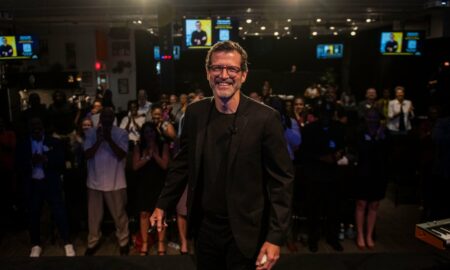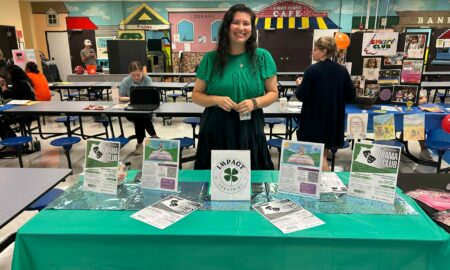

Today we’d like to introduce you to Rachel West.
Rachel, let’s start with your story. We’d love to hear how you got started and how the journey has been so far.
It started the Fall of my Freshman year at Oxford College of Emory University in 2015. I had been thinking about how cool the concept of geofencing technology was and how it could play into my life in other ways. The technology at the root of Yik Yak and Snapchat’s filters is what originally inspired me to think about other ways to utilize geofencing to help fix some of the problems I noticed on campus around me.
I settled on the impact that geofencing would have on the nightlife scene. While Atlanta has a variety of bars, clubs, and exciting nightlife, the city is spread out and often the choice of where to go comes with a cost. If you choose to go to a specific place, other areas can become out of reach. As an Atlantan, you have to Uber or drive to get anywhere, so when it comes to committing to nights out, students want to be sure that wherever they go, it will have a fun atmosphere, great music selection, and will be busy enough to be enjoyable.
I realised that there was no way of knowing how lit somewhere was, you had to take the chance every time you went out. If there were a way that you could find out, before you even left the house, whether a place was lit, the likelihood you would have a great time would go up immensely. My first instinct was to set up a website. What if you could check to see if the bars closest to Emory were “lit”? Surely that would make the overall experience of going to bars more enjoyable for people? This whole idea was triggered by a question that often comes up during a pregame when a person says, “Why don’t we go to…” but then someone else asks, “yeah, but… is it lit?”. My thought was that this decision could be made easier by creating an app that utilizes geofencing technology to allow users at a venue to self-report the atmosphere in real-time.
I pitched the idea as part of an Entrepreneurship class, where I met my co-founder David Jacob. He and a bunch of my classmates bought into the idea and we worked on it for the next four months, until we were able to show the litness of one venue, Emory’s usual hotspot, Maggie’s Neighborhood Bar and Grille. Only a few months later, we raised our first $1000 investment and launched the first MVP version of LitCheck. We had our ups and downs, working with multiple developers, working with many iterations of what we thought would be best, but over that time we built a long term team and learned how to build a product. Most importantly, I have learned what goes into taking an idea and turning it into a reality.
Overall, has it been relatively smooth? If not, what were some of the struggles along the way?
Developing LitCheck has definitely not been a smooth road. There have been so many hardships I have encountered, for which I am grateful for because I have learned so much. LitCheck has truly evolved and improved because of the bumps I have hit along the way, and I am sure there are many more obstacles to come.
The biggest challenge for me would definitely be not having a prior background in technology or software development. I knew nothing about coding when I first started and had to quickly adapt and educate myself all while learning to build a business as well. Luckily, as the early years of LitCheck occurred while I was in college, I had a variety of resources available to me on campus. I took computer science and data science-related classes, taught myself to code over one summer, and further developed my business knowledge at Emory’s Goizueta Business School. While my coding skills could use some work, I am more knowledgeable now, which has helped me in working with those who are far more experienced in this field.
Another challenge has been finding developers willing to devote their skills and time for low wages or equity. There is so much that goes into this app from software to working with partner bars, that it requires a team of dedicated workers who are passionate about LitCheck’s purpose and value. Initially it was difficult to establish a single team, but I am glad at this point in LitCheck’s progress, I have found a great team that has helped to further LitCheck along.
Alright – so let’s talk business. Tell us about LitCheck – what should we know?
LitCheck is a mobile app that informs users whether or not a bar or a nightclub is worth going to in real-time Additionally. The LitCheck business software improves the process of getting a drink at a venue with our digital ordering system designed to optimize the bottleneck of the ordering process. We have completed phase 1 of development for the app, meaning you can check the Litness and are currently working on developing an ordering system. This system would allow users to earn points within the app for rating the “litness” of a bar, which would convert into a discount for drinks ordered at our partner bars. To further advance the progress of LitCheck, we are still solidifying agreements with potential partner bars, and by Fall 2020 we are looking to pilot our software at various local bars in the Atlanta area. You can access an early version of the LitCheck app for download in the app store today (links included below).
I am the CEO and co-founder of the company and spend most of my time working on raising money, planning and executing strategy, testing the app, and managing my team. I specialize in product management with an emphasis on data analytics and user experience. At LitCheck, we pride ourselves on being a diverse and inclusive team, we have a range of individuals from all races, genders, and walks of life. Diversity is important to me as a gay black woman, so we have embedded this into the fabric of who we are as a company. As a company, we are most proud of the fact that we have been able to build an app from scratch without knowing anything. We are a team of diverse, passionate, and incredibly intelligent young professionals and we are building this app to make sure nobody has a dull night out if we can help it.
If you had to start over, what would you have done differently?
If I had to start over, I would have had the first app we launched in January 2018 built with React Native because it delivers the best user experience we can on a very small budget.
Outside of that, I probably would have tried to make sure that I was taking advantage of every opportunity I could. Looking back, I feel like I let some opportunities go because I wasn’t ready mentally or professionally for what was expected of me. At the same time, I try not to let things like this get to me since I am so young. I recognize that I still have so much to learn about software development and building a business, so I am just excited for every continued opportunity I get to further my knowledge.
Contact Info:
- Website: http://www.litcheck.com/
- Email: livlitcheck@gmail.com
- Other: Want to be a beta tester? Download the LitCheck app available for early release on iOS or Google Play today!!!Link to download on iOS: https://apps.apple.com/us/app/litcheck/id1478041445
Link to download on Google Play: https://play.google.com/store/apps/details?hl=en_US&id=com.liv.litcheck







Suggest a story: VoyageATL is built on recommendations from the community; it’s how we uncover hidden gems, so if you or someone you know deserves recognition please let us know here.



















